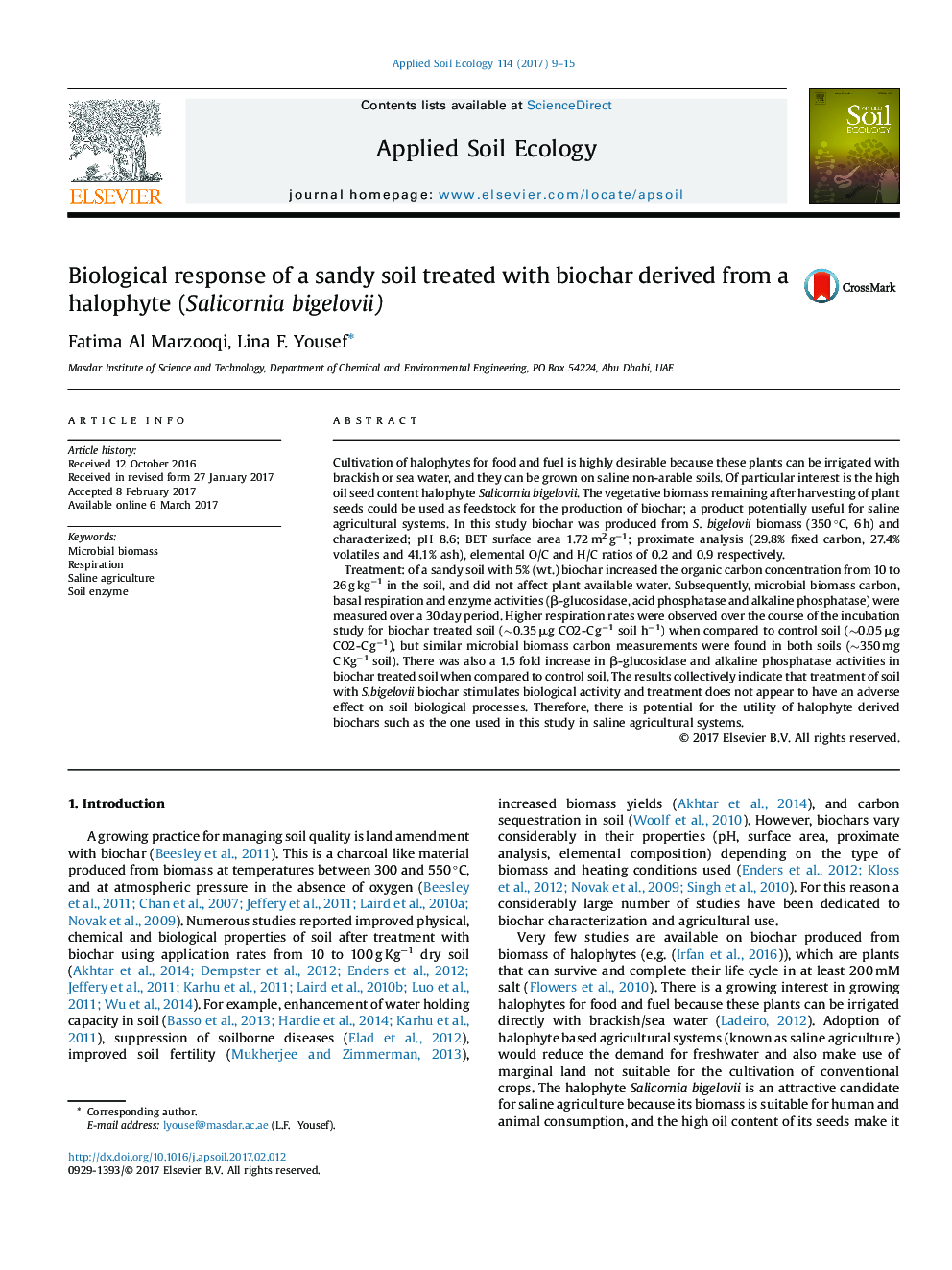| Article ID | Journal | Published Year | Pages | File Type |
|---|---|---|---|---|
| 5742708 | Applied Soil Ecology | 2017 | 7 Pages |
â¢Converting raw biomass to biochar decreased volatile matter and increased fixed carbon and ash.â¢Treatment with 5% (wt.) biochar increased EC of soil extract.â¢Treatment with 5% biochar increased soil organic carbon concentration.â¢Treatment with 5% (wt.) biochar did not affect soil microbial biomass carbon.â¢Treatment with 5% (wt.) biochar induced soil basal respiration and enzyme activities.
Cultivation of halophytes for food and fuel is highly desirable because these plants can be irrigated with brackish or sea water, and they can be grown on saline non-arable soils. Of particular interest is the high oil seed content halophyte Salicornia bigelovii. The vegetative biomass remaining after harvesting of plant seeds could be used as feedstock for the production of biochar; a product potentially useful for saline agricultural systems. In this study biochar was produced from S. bigelovii biomass (350 °C, 6 h) and characterized; pH 8.6; BET surface area 1.72 m2 gâ1; proximate analysis (29.8% fixed carbon, 27.4% volatiles and 41.1% ash), elemental O/C and H/C ratios of 0.2 and 0.9 respectively.Treatment: of a sandy soil with 5% (wt.) biochar increased the organic carbon concentration from 10 to 26 g kgâ1 in the soil, and did not affect plant available water. Subsequently, microbial biomass carbon, basal respiration and enzyme activities (β-glucosidase, acid phosphatase and alkaline phosphatase) were measured over a 30 day period. Higher respiration rates were observed over the course of the incubation study for biochar treated soil (â¼0.35 μg CO2-C gâ1 soil hâ1) when compared to control soil (â¼0.05 μg CO2-C gâ1), but similar microbial biomass carbon measurements were found in both soils (â¼350 mg C Kgâ1 soil). There was also a 1.5 fold increase in β-glucosidase and alkaline phosphatase activities in biochar treated soil when compared to control soil. The results collectively indicate that treatment of soil with S.bigelovii biochar stimulates biological activity and treatment does not appear to have an adverse effect on soil biological processes. Therefore, there is potential for the utility of halophyte derived biochars such as the one used in this study in saline agricultural systems.
